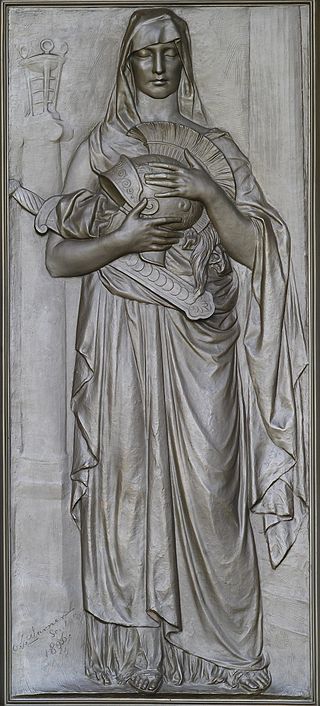This reader is responding to an answer I gave to Rob McClennan as part of his 12 or 20 Questions series. You can read the entire interview at the link. However, here’s an excerpt to the bit that provoked a question:
Fiction…is the more demanding art form, at least for me. It’s rooted in deeper traditions, and the risks you take leave more at stake than just personal embarrassment, or someone taking issue with an idea you have. When you’re writing fiction, you’re sitting in the room with all the ancestors, the lineage going all the way back to Homer, to the Old Testament, Christ’s parables, the myths and legends that form the foundations behind the fundamental assumptions we use to create a reality for ourselves. So, you’re adding a patch to that quilt, as you stretch and bend it. It’s a really demanding moment.
Several people have found this answer surprising. My memoir, Relief by Execution: A Visit to Mauthausen, handles heavy themes, not least of which is the Holocaust. The belief is that themes, not mediums, determine difficulty.
There’s truth to that assumption, though my novels also handle themes like sexual assault, domestic violence, collapsing identity, wartime trauma, family dysfunction, religion, artistic process, etc.
I’m sure there are writers who find memoir-writing impossible. Writing my memoir was frightening; however, I could do it, whereas I can’t write poetry without it sounding like a nursery rhyme, bad rap song or random grocery list. I don’t bother with it. It’s too demanding.
Demanding how? I think it’s important to separate emotional demands from technical ones. They’re related, sure, but I find it much easier to say “this hurts” or “here’s where I messed up” or “here are my flaws” than implementing the scalpel, rib shears, protractor and carpenter square necessary to write even a short story of a few hundred words.
Of course, the demands are largely determined by me.
I’m aware and respectful of traditions, use a fair amount of allusion in my fiction, and when I draw water from the well that is the English language, I let the pail sink for a while before drawing it up. I’m bored otherwise.
At the same time, I think there’s an important note in English that colors my awareness of the past, as the words we use to categorize prose are fiction and non-fiction. That implies the default form is fiction, while the other form is its negation.
Imagine if, instead of saying vegetable, we used non-fruit or something. Fruit would clearly be the primary reference point.
To me, fiction is the primary reference point. The great lessons in Western civilization come in stories. Myths, fables, parables and allegories make up the reference points that both progress and define our culture, and we engage in much more soul searching and theoretical “what if” in our fiction than we do in our laws, news reports or histories. American philosophy—Emerson or Thoreau—is blithe stuff compared to Moby Dick or Huck Finn. Homer and Sophocles get me going much more than do Aristotle or Kant.
It’s true that a great historiographer must use her imagination to connect one dot to the next while arguing for some cause. Historiography is demanding, but I’m not an historiographer. I don’t have that kind of mind. I’m an artist, and when I want to put myself to the test, I try writing fiction. It’s sad that more people don’t read it, and that economic and social obstacles have prevented me from writing more than I have, but that doesn’t change what I find engaging.
I think the best example of what I mean should come from writers I admire. If we compare Nabokov’s memoir, Speak, Memory to Lolita, I think we’ll find he’s working much harder in Lolita. Dostoevsky hardly breaks a sweat in The House of the Dead, even when he’s describing gruesome scenes. But in his great novels, he’s carrying massive stones up the hill.
Some writers who find memoirs more demanding than novels might come up with examples of novelists who have it easy compared to their memoirs. I can’t think of any off the top of my head.
Ultimately, art is a kind of perversion in which the artist creates some problem and tries to deal with it, usually alone. Notice that dealing with it is different from solving. Beware artists who think they’ve got something figured out.

Photo of Memory by Olin Levi Warner (1896) from Wikipedia.

You must be logged in to post a comment.